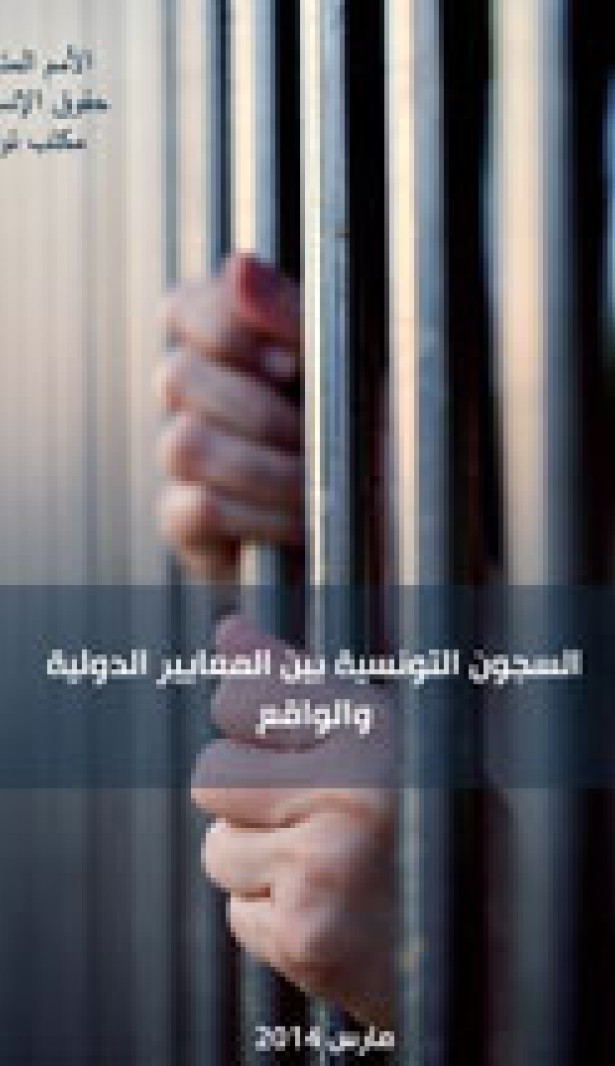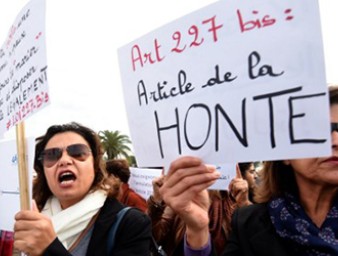The UN Human Rights Office reports on the state of prisons in Tunisia
25 April 2014

The high number of pre-trial detainees is the major cause of the widespread and serious overcrowding in Tunisia’s prisons, according to a report from the UN Human Rights Office.
“Prisons in Tunisia: International Standards versus Reality”, released in April 2014, concludes that judicial authorities tend to detain people prior to their trials as a matter of course, rather than as a last resort as required by international standards.
The survey of Tunisia’s prisons is the result of two years of work by the UN Human Rights Office with the cooperation of the Ministry of Justice and is part of a programme to support the country’s transition to democracy through the promotion and protection of human rights in essential institutions.
At the launch of the report, the First Vice-President of the National Constituent Assembly, Meherzia Labidi welcomed its publication and said the recommendations would be used by the Assembly to ensure compliance of national detention-related laws with international standards. Labidi stressed the strong support by the Assembly for the work of the UN Human Rights Office in Tunisia. The Director-General of Prison Administration, senior Ministry of Justice officials and several other Members of the Assembly were also present at the launch.
The report says it is not uncommon for prisons to be at more than 150 percent capacity and gives as an example, Kef prison, in north-western Tunisia, where each prison guard is responsible for 76 inmates, increasing the risk of fights and violence and reducing the likelihood that prison guards can retain control.
In Manouba Women’s Prison, in the north-east of the country, the researchers noted that one of the dormitories held 60 inmates, only ten of whom had been sentenced. Some of the detainees interviewed for the report said they had been waiting for their cases to be heard for three years, this despite the Code of Criminal Procedures setting the maximum preventive custody at 14 months for felonies and nine months for misdemeanors.
The survey team also observed large numbers of both male and female prisoners, in their early twenties and engaged in university studies, convicted for drug-related offences. To address this issue the report has recommended the Tunisian Government consider adopting the principle of progression of sentences for drug-consumption crimes – from fines to sentence suspension, then imprisonment.
The Tunisian prison authorities maintain separation of women and men, however, in all of the institutions long-term prisoners were mixed with those in the pre-trial phase and those with serious criminal records were integrated with first offenders.
The Head of the UN Human Rights office in Tunisia, Dimiter Chalev said the project involved assessment of the physical conditions in Tunisia’s prisons, utilisation of the data provided by the local authorities and measurement of the results against international and national standards for detention and treatment of prisoners.
The problem of overcrowding, Chalev said, is not due to a rise in crime or an increase in sentenced prisoners but rather because the prison sentence itself is at the centre of the penal system, in contradiction with the premise that a person is innocent until proven otherwise.
Noting that more than half of those held in Tunisia’s prisons are accused only, Chalev said people should only be imprisoned when they represent a threat to public safety. The Human Rights office is recommending, he said, that national legislation be amended in accordance with international human rights standards so that imprisonment is a true measure of last resort.
The recommendations in the report to reduce overcrowding in the penal and justice system include: developing legislation to guarantee a fair trial and investigation; reducing the number of short-term prison sentences; and reviewing the legislation dealing with pre-trial detention and trial so that it also conforms with the new Constitution and international standards.
The UN Human Rights Office was established in Tunisia in 2011, not long after a popular uprising overthrew the autocratic regime and the country embarked upon a transition to democracy. The activities of the Office include strengthening accountability and the rule of law, combatting inequalities and poverty, increasing engagement with international human rights mechanisms, and monitoring the country’s compliance with its international human rights obligations.
25 April 2014




